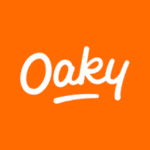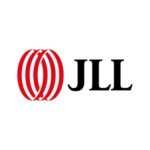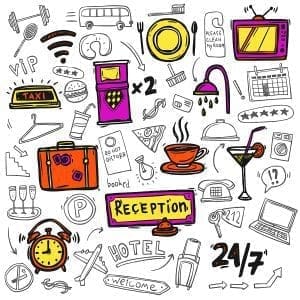 This year is going to be an important year for hospitality professionals. After a hard year for businesses and staff the hospitality industry is heading towards a recovery which is expected to begin in earnest midway through the year. ‘Staycations’ and local, domestic tourism will continue to define the market until international borders completely reopen.
This year is going to be an important year for hospitality professionals. After a hard year for businesses and staff the hospitality industry is heading towards a recovery which is expected to begin in earnest midway through the year. ‘Staycations’ and local, domestic tourism will continue to define the market until international borders completely reopen.
For hospitality professionals who want to get back to work, now is the perfect time to study, upskill and get prepped for a hospitality career in the post-pandemic future.
Renewed optimism about the hospitality job market
You can definitely feel optimistic about the hospitality job market beginning to recover this year.
There are positive signs that the hospitality industry will begin bouncing back in 2021, opening up much-needed opportunities for hospitality professionals.
According to a new study by market research firm YouGov released on January 20, 81% of Australian restaurant owners surveyed said they plan on hiring more staff this year. Governments are also introducing some hopeful new initiatives to support the industry, such as Dine and Discover in NSW.
However, recovery to pre-pandemic levels will take time.
Jobs are expected to be slow in returning for at least the first half of the year, and experts say it may take several years to get completely back to pre-pandemic levels of employment in the sector. Plus, there is concern among hospitality workers that jobs will become particularly scarce when the JobKeeper subsidy ends in late March.
If you’re one of the many hospitality professionals who have been watching and waiting for the industry to pick up again, you may have to wait a little longer.
But, that doesn’t mean you have to put your career on hold.
There are two big reasons why studying and upskilling might be exactly what you need to make the most of 2021 – until you can get back out there into a stronger job market.
New world, new skills
Firstly, it’s a new world, and it needs professionals with new skills.
Although the world will start to look more normal this year, the hospitality industry has changed as a result of the pandemic and will continue to be shaped by it in the immediate future.
- Sanitation and social distancing measures will continue to play a role in our lives throughout the year, as the virus is brought under control.
- Home delivery is going to continue to play a massive role in restaurant sales, with 8.7 million Australians now using a delivery app compared with 4 million before the pandemic.
- The trend towards digital and contactless technologies has accelerated rapidly.
- The pandemic has driven changes in customer behaviour.
- Working from home is here to stay, with many companies adopting more flexible policies beyond quarantine. As a result, CBD restaurants and bars have taken a downturn in Australia while suburban cafes are up in sales.
Hospitality businesses that have struggled through the pandemic will be looking for fresh ideas and skilled new talent to guide them into recovery, when the economy picks up again.
Of course, you clever hospitality professionals are already well aware of the advantages of upskilling during lockdown. The Blue Mountains International Hotel School (BMIHMS), for example, reported a significant spike in uptake of short industry courses by furloughed workers in May last year.
At least the first half of this year also looks likely to be a slow time for hospitality. I can say with certainty that it’s most beneficial for your long-term career to be in training rather than being underemployed.
Get support as you upskill
Secondly, you could be stepping up your career while getting support.
As you are probably well aware, JobKeeper is ending in March and there’s no certainty right now that it will be replaced by the ‘HospoKeeper’ subsidy that industry leaders are calling for.
If you’re concerned that you might lose assistance and be unable to find work, have you looked into whether you may be eligible for a study allowance?
Youth Allowance and Austudy are available to full-time students residing in Australia. This includes those studying courses in hospitality, tourism or hotel management. Plus, Australian residents can apply for a FEE-HELP loan, to cover all or part of any tuition payments and repay the amount at a later date.
You could potentially be helping yourself in two ways – investing in essential new skills as you wait for a better job market, while also signing up for government assistance for the duration of your studies.
Many institutions are still open for enrolment in 2021, so take a look at the website of your institution of choice. See here for key dates at Torrens University Australia (TUA).
What skills will you need for a post-COVID-19 hospitality career?
Hospitality will always require professionals who excel in skills that form the backbone of the industry such as customer service, culinary, food and beverage or management skills.
During the last year, however, several skill sets have emerged as critical to businesses during the 2020 crisis. These skills are particularly in demand among professionals right now and will continue to be so, going into the future.
Make sure that you’re setting yourself up with the most desirable and in-demand skill sets for hospitality in 2021 and beyond.
1. Leadership
“The days of a hotel manager shut away in a back office are over. They will need to be multifaceted: even more present throughout the hotel, taking care of guests and staff, mobilising their teams, coaching, teaching and leading by example.” – Petra Deuter (Executive Director, Iconic Luxury Hotels) in a recent article for TravelDailyNews.
Looking back at 2020, it’s become clear to analysts that leadership played a big part in determining whether a hospitality business would survive the crisis.
Good leadership during the pandemic meant: acting swiftly, planning long-term, developing creative solutions, taking social distancing seriously, taking care of employees, innovating, being charitable and socially responsible, and communicating honestly and empathetically with staff, stakeholders and customers.
Arne Sorenson, CEO of Marriott International, provided an inspiring example of hospitality leadership through a crisis in 2020, with his direct, empathetic communication and effective management. Luckily, you can learn to be an Arne Sorenson, and there are a number of fantastic courses in leadership out there.
Most hospitality management courses offer a range of leadership topics, while some courses, such as the Bachelor of Business (Hospitality Management) at Torrens University, not only deliver leadership but are also specifically designed to equip you with the skills to effectively respond to and manage crisis situations.
2. Soft skills
Leadership is one of a whole spectrum of soft-skills that are going to continue to be in high demand in the post-corona hospitality industry.
These include skills such as:
- Critical thinking
- Innovation
- Creative problem solving
- Flexibility and adaptability
- Communication and emotional intelligence
- Self-awareness and self-management
- Negotiation and relationship management
In fact, this is not a new trend, but it has been accelerated by the crisis. In 2016, 72% of CEOs surveyed in the hospitality and tourism industry agreed that soft skills are more important to the success of their business than hard skills.
Hospitality staff who can adapt fast, think critically, listen well and empathise with customers and their teams will be more imperative now than ever before.
This isn’t just because of the pandemic; this trend is also shaped by changes in social values. Values such as trust, empathy, sustainability, authenticity and social responsibility are now more important to consumers than they used to be.
I would especially advise any hospitality professional aiming for management positions to study topics, such as crisis management, strategic planning, sustainability, innovation, cultural awareness and communication.
These transferable soft-skills will serve you well your whole career, whether you stay in hospitality or move into another industry.
3. Social Media
The explosion of social media during the pandemic has been well documented. The average amount of time people spend on social media in Australia has grown by estimates of 30% or more in the past year alone. Many of these social media users are looking for advice on their favourite platforms when making decisions about dining or travel.
Recent social media usage data shows that travel destinations (65%) and hospitality venues (51%) are among the most looked-up brands in Australia.
You can be sure that now and in the future, social media will only continue to grow in importance for your hospitality business – not just for branding, messaging and marketing, but also for reassuring customers of your safe practices, gathering data and engaging with new audiences.
If you decide to upskill and become a social media specialist for hospitality businesses, you will most definitely be in-demand in the new economy.
4. Digital Technologies and AI
From contactless check-in systems to AI generated holiday packages, hospitality businesses have turned towards digital solutions during the pandemic, and that trend is here to stay.
Here are a few of the technologies we can expect to see continuing to play a role in the hospitality and tourism industry for the coming years:
- Food delivery apps doubled in usage during 2020 in Australia
- Digital room keys and contactless check in systems in hotels
- Automated revenue management systems
- Touchless digital menus in restaurants
- Digital events and conferences are booming
- Big data and AI data analysis
If your passion and experience lies in hospitality but you’ve got an interest in tech then you might consider investing in a digital skill set and using it to implement hospitality solutions.
For example, you could become a social media manager specialising in hospitality brands. There is a significant digital skills gap in the current hospitality industry, so you will almost certainly be in demand as soon as you graduate.
5. Sanitation and Housekeeping
Housekeeping and cleaning roles took on a whole new level of significance during the pandemic. All of a sudden, housekeepers and cleaning staff became frontline workers in the struggle to save lives.
Even when social distancing and sanitation regulations are no longer in place, customers will still demand higher levels of hygiene than before the pandemic. They will need to be convinced that your business is squeaky clean before they feel safe enough to return.
If you haven’t already been put into a sanitation role during the pandemic, it’s not a bad idea for you to now level up your understanding of sanitation regulations, coronavirus safety and the new high standards for housekeeping.
Although it may seem like a daunting year to enter the industry, remember that all periods of disruption bring new opportunities. It’s the ideal time to set yourself up for a new career direction, learn some in-demand skills and prepare for a resilient industry that will come back more vibrant than ever.
About the author
Kirsten Browne is Program Director, Hospitality, Tourism and Culinary Management at Torrens University Australia.















